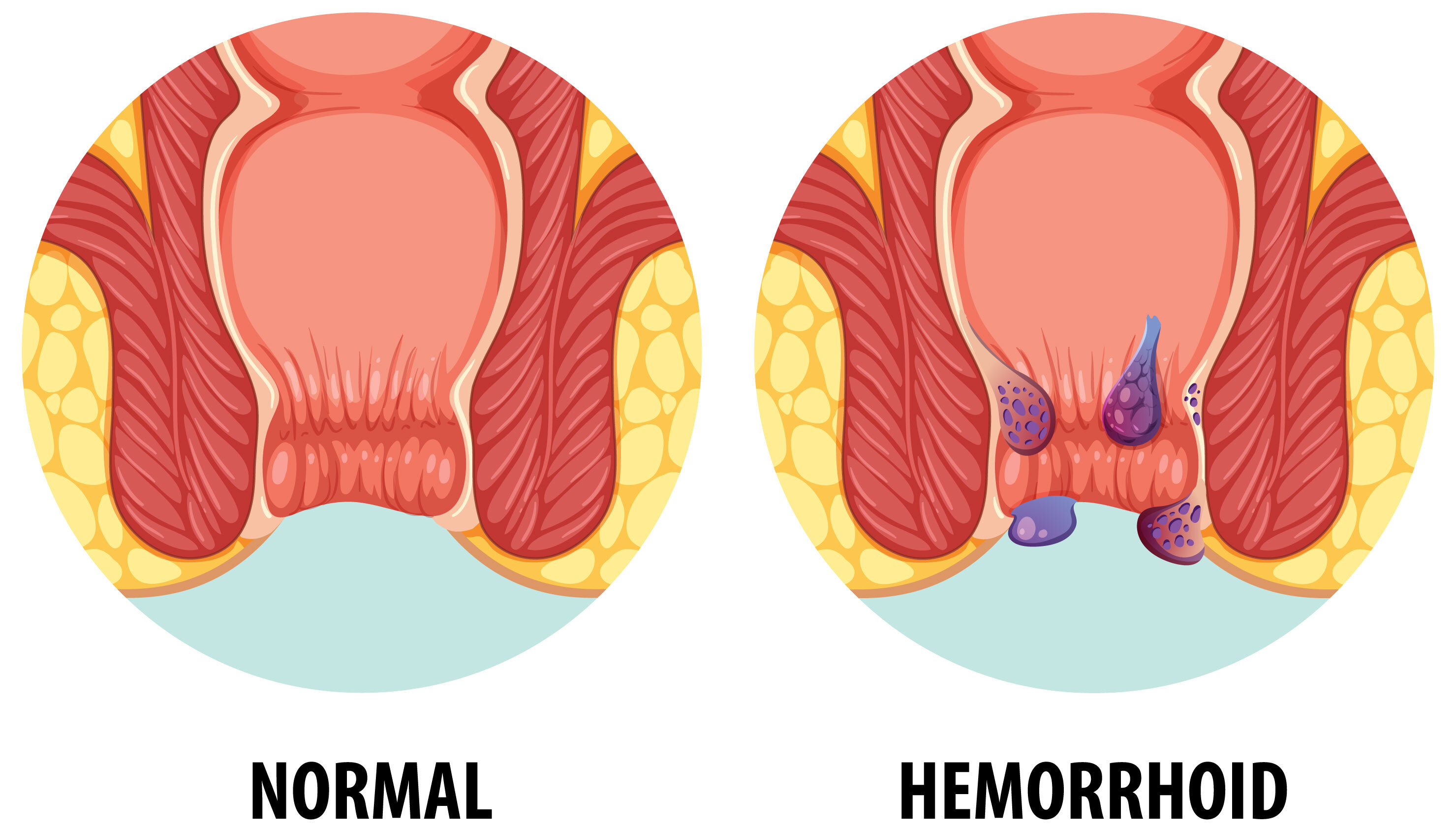Benefits of Piles Laser Treatment
| Cuts | Multiple | Minimal |
| Scars & Stitches | Multiple | Minimal |
| Procedure | Painful | Minimal Pain |
| Blood Loss
| High | Low |
| Infection Chances
| High | Minimal |
| Recovery | Bed Rest | Fast Recovery |
| Hospital Duration
| Long | Short |
| Technology | Outdated | Advanced |
Types of Piles Treatment
Non-surgical Piles Treatment
The doctor places one or two small rubber bands around the base of a hemorrhoid to cut off the blood supply to the hemorrhoidal tissue. As a result, the hemorrhoid shrinks and falls off within a week or two.
It uses infrared light to heat and coagulate, and shrink the hemorrhoid. Infrared coagulation is used to treat small to mid-size hemorrhoids. Most patients can resume their daily routine immediately with little to no discomfort.
During a sclerotherapy, your doctor injects a chemical solution into the affected, swollen blood vessel to destroy the hemorrhoid tissue. Sclerotherapy causes the hemorrhoid to scar, shrink and effectively close them off. It is a minimally invasive procedure, and the injection causes little or no pain.
Surgical Piles Treatment
Hemorrhoidectomy is an effective procedure to treat severe and recurring hemorrhoids. Depending on the severity of the patient’s condition, it is performed under local/general/spinal anaesthesia. Your doctor may also suggest some medications to help you feel calm and relaxed during the process.
- Hemorrhoid stapling or stapled hemorrhoidopexy
Stapled hemorrhoidopexy reduces the chances of incontinence and causes less bleeding and itching. This method usually takes around two to three weeks for the patient to recover completely.
- Transanal hemorrhoidal dearterialization (THD)
THD is a minimally invasive procedure to treat internal hemorrhoids. It reduces the blood supply and repositions the tissue. Using a Doppler device, hemorrhoidal arteries are located and tied off. The prolapsed tissue is then stitched back into its correct anatomical position.
Is laser treatment for piles good or bad?
Piles surgery, which involves making incisions in the affected areas, is usually the last treatment option for piles. In addition to being uncomfortable, it requires several bandages, a lengthy recovery period, and multiple visits to the hospital. There is a considerable chance of recurrence even after undergoing so much discomfort.
Piles laser treatment, on the other hand, is less invasive and can improve the overall treatment experience of the patient. There’s no need to cut tissues. The procedure is completed in a matter of minutes by merely applying laser energy to the damaged area in a targeted and accurate manner. After the laser therapy for piles, patients can immediately return to their regular lives. Laser treatment for piles has gained popularity for its ability to target the affected areas with precision without affecting the nearby healthy tissues.
Benefits of Laser Piles Treatment
- Reduced pain and discomfort – Laser piles treatment is minimally invasive and causes less pain in comparison to traditional surgeries.
- Less bleeding – The laser treatment for piles seals off the blood arteries in the anal area and doesn’t affect the healthy tissues surrounding the surgical site.
- Reduced hospital stay – The patients undergoing the piles laser treatment do not need to spend the entire day in the hospital. Usually, they are discharged within an hour after the surgery.
- Quick recovery – Though the patient is discharged within an hour of surgery, the doctor may suggest resting for a few hours after the surgery for better healing. In several cases, the healing time is too short, and the patients can resume their normal routine after a couple of days of rest.
- High success rate – Laser surgery is far simpler to perform than traditional haemorrhoid surgery. The procedure has a high success rate and typically takes between 45 and 60 minutes to complete.
- Minimal tissue damage – The laser treatment for piles has a very little possibility of causing harm to the muscles in the spine and other tissues close to the affected site.
Side effects of laser treatment for piles
Usually piles laser treatment is considered safe and effective. However, there are certain risks and complications associated with this method. The doctors may recommend painkillers or other pain management techniques to address the piles laser treatment side effects.
Patients may experience discomfort or pain after the piles laser treatment. To reduce these symptoms, the doctors may prescribe painkillers or recommend other pain management methods.
You may experience some minor bleeding both during and after the procedure. Though it should go away in two to four weeks. It’s important to get in touch with a doctor right away if bleeding is severe and not improving.
It is a minimally invasive procedure, and with proper hygiene offers a very low risk of infection.
The treated area may experience bruising, swelling, redness, and discomfort. Usually, these side effects go away in two weeks.
Adverse reactions to painkillers or other prescription medications may occur in certain patients. It is crucial to consult a doctor right away if a patient has any severe symptoms.
 Aditya Birla Health Insurance Co. Ltd.
Aditya Birla Health Insurance Co. Ltd.
 National Insurance Co. Ltd.
National Insurance Co. Ltd.
 Bajaj Allianz General Insurance Co. Ltd
Bajaj Allianz General Insurance Co. Ltd
 Bharti AXA General Insurance Co. Ltd.
Bharti AXA General Insurance Co. Ltd.
 Future General India Insurance Co. Ltd.
Future General India Insurance Co. Ltd.





















.svg)




